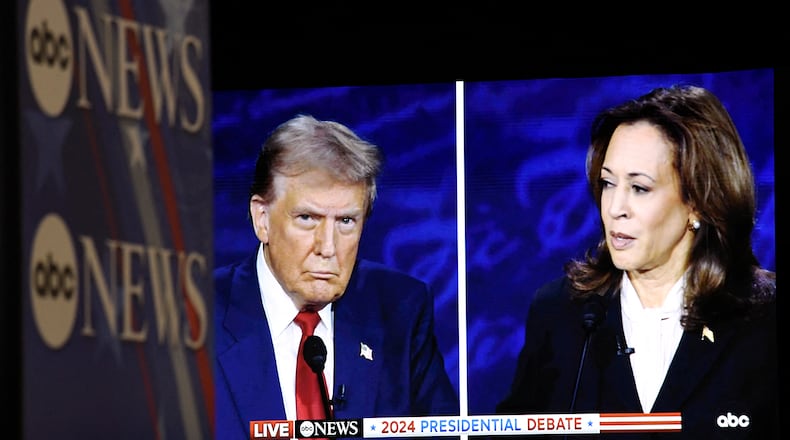“I would like to know for both candidates about ... health care and women’s rights on abortion and Medicare. Is it really the president that makes the decision or is it Congress?”
- Debbie Brilling
Hi Debbie,
Credit: Mike Luckovich
Credit: Mike Luckovich
The short answer is the president has a lot of say, but not all. Congress, state governments and the Supreme Court do, too. And it depends on the issue. Let’s take each of these three health subjects you mention separately.
As for your question on who holds power over these issues, the vote you cast for president will matter greatly. A president has a huge influence on what initiatives and issues are put before Congress.
But a president can’t operate alone on any of these issues. Let’s get into the details below.
Toward the end of summer, we asked AJC readers to share any and all questions they had on the topic, and they delivered. With the elections for the president and legislative offices about a month away, questions on health care are looming large on the campaign trail.
Health care (insurance)
Often times when people talk about whether or not they have health care, they mean health insurance. You didn’t specify, but I’ll go with that interpretation here.
The biggest decision presidents make these days when it comes to health insurance is whether to support the Affordable Care Act.
Congress passed the ACA in 2010, and only Congress can repeal it. But a president can try to push Congress to repeal it or to make changes in the program.
In his first presidency, former President Donald Trump vowed to repeal the ACA, and following his lead, Congress took it up, coming just one vote short.
President Joe Biden did the opposite: He proposed new subsidies that made the ACA’s plans cheaper for low-income people and upper-middle-income people. Congress passed that funding, and that helped add about 700,000 Georgians to the ACA rolls. Those subsidies are set to expire in 2025, and whether to renew them is up to both Congress and the future president.
The president can act directly to accomplish some changes in ACA even without the help of Congress. His or her administration can make rules that ease the process of enrolling in an ACA health insurance plan, like giving people more time to enroll. And they can fund supportive extras, like advertising to inform people what to do and navigators who help guide people through enrollment.
Abortion
This is one issue where the Supreme Court had the most say — but the president had a powerful influence. Trump changed the U.S. landscape on abortion because he had a strategy to appoint new U.S. Supreme Court justices who were likely to overturn Roe v. Wade, and they did.
Going forward, there are still some ways the president and Congress can influence abortion availability. The president appoints leaders to the agencies that oversee approval of abortion pills, for example. And the president oversees the agencies that tweak rules on patient privacy — for example, a patient’s pregnancy test results.
If a president pushed for a national law concerning abortion, Congress would first have to agree. And in the end, it would be up to the Supreme Court to say whether that stays in place.
There are some decisions concerning abortion that are in Congress’ hands: It has already decided federal money will rarely pay for abortions, except in cases in rape, incest or danger to the life of the mother.
Medicare
Medicare was created and funded by Congress. No president alone can undo that. But there are some changes the president can make.
Biden pushed Congress to allow Medicare to lower the cost of drugs by negotiating prices with drugmakers, starting with 10 popular drugs. Also as a result of that 2022 law, insulin now has a $35-a-month cap for Medicare patients.
Future presidents will have to work with Congress to decide how to deal with Medicare’s coming budget shortfall. Options may include reducing benefits; trying to negotiate or otherwise drive down prices; or just spending more.
About the Author







